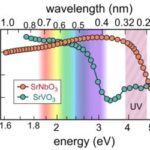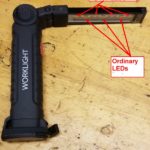 Pfannenberg, Inc. announces the new BR50 Series Stacklight. The BR50 is the brightest stacklight available, which outshines previous Pfannenberg LEDs by 10,000 percent. The new BR50 Series Stacklight features an online configuration tool that makes it easier to design a simple stack light and provides a manufacturer’s suggested retail price (MSRP) and the resulting bill of materials.
Pfannenberg, Inc. announces the new BR50 Series Stacklight. The BR50 is the brightest stacklight available, which outshines previous Pfannenberg LEDs by 10,000 percent. The new BR50 Series Stacklight features an online configuration tool that makes it easier to design a simple stack light and provides a manufacturer’s suggested retail price (MSRP) and the resulting bill of materials.The new line of Stacklights results in significantly improved safety and productivity from increased levels of ambient light. Whether installed on cabinets, machinery frames, or junction boxes, BR50 Stacklights adds to facility safety, productivity, and style. They are available in a variety of mounting options, including direct-to-base, tube-and-bracket, and tube-and-stand (plinth). The optional wall-mount bracket creates a clean look.
The exponentially brighter LEDs offer higher visibility and a slim design (ø 54 mm). The BR50 LED’s heightened luminosity is further amplified by the internal prisms’ impact-proof, heat-resistant, and dust-proof polycarbonate lens, which is easily identified from all sides.
BR50 Stacklight’s easy-to-assemble component architecture supports up to five interchangeable modules. They are available in several custom configurations, with up to five color segments independently actuated and a sound module that provides a distinctive audible warning for sensitive applications. Users can select from BR50 LEDs for continuous or blinking operation, as well as high-visibility flashing xenon tubes. The BR50 Stacklights also offers easy integration into an AS-Interface bus system.
Pfannenberg’s new stacklight configurator takes the guesswork out of determining the specific part numbers for an application. With the pre-configured part number option, users can select a specific voltage and color combination, and the stacklight comes pre-assembled in the box, offering plug and play signaling with one part number. The “build your own” option lets users create a custom design with a wide range of options for voltage, mounting style, color combination/sequence, IP rating, safety, and network capability, and signaling modes.




